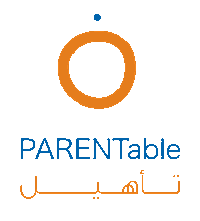
Counseling with parents of newly migrated children - How to solve problems in precarious contexts
by
Faculty members at the Psychological Counseling and Guidance Program under the Department of Educational Sciences at the Faculty of Education of Muğla Sıtkı Koçman University. Muğla Sıtkı Koçman University, Turkey.
Prof. Dr. Ayşe Rezan Çeçen Eroğul,
Res. Assist. Dr. Senem Ezgi Vatandaşlar
This module deals with stress, adaptation, coping, and growth. Life is full of stressful events and refuge is one of these. Experiencing stress altogether as a family as a result of a human-made disaster can be tough. But it can also be an opportunity for growth. In this module, you will find information about stress related to refuge and adolescence, transitioning to a new culture, and the ways that this experience can contribute to one's growth. Tips for parents and teachers/counselors are presented to help children more effectively.

Stressful Life Events
Stressors Related to Refuge
Refuge is a difficult experience including so many stressors at every stage: before, during, and after the journey from home to host country. It can result in all members of the family being traumatized. Maybe the worst part is that the catastrophe has been caused by humans, not by nature or coincidence.
Transition
Transition is especially hard when you feel like you are stuck in between, not being able to go back, not being able to settle where you are (Dieterich-Hartwell & Koch, 2017). But do you think it might be possible to make the host country a new home country?
Coping & Growth
Some get lost in the abyss , some go back to their normal lives, and some grow out of it. Check the path of a stressful journey.
What Problems Do Migrant Children Face?
It’s understandable that so many stressors can lead to psychological distress..
The same stressful life events may be experienced differently by different people;
Some people can develop psychosocial problems,
Some people see them as disturbances that can be dealt with
Some people can grow out of it…
Post Traumatic Growth
Consider your life before the stressful life event as a reference point to locate your "normal life". This represents an average state of affairs going on in your life. Afterwards, a stressful life event happened, worsening things to some extent. There might have been further challenges and suffering associated with the event. But the direction may have been turned upward at some point, where you had hoped to make things better and maybe did things to achieve a life as good as before - maybe even a better one.
The abyss: Spiritual & emotional death
Transformation
NORMAL
LIFE
POST
TRAUMATIC
GROWTH
Appreciation of life
Stressful life events
The Abyss: Spiritual & emotional death
Hope
Readjust to emcompass the event
Spiritual changes
Personal strength
Relating to others
New Possibilities
Prioritization
New goals
More understanding
Gratitude
Hope
Kindness
Leadership
Love
Spirituality
Teamwork
Stronger
More skillful
Wiser & maturer
Closer relationship
Strengthened social ties
Sense of belonging
Unity
Suffering
Challenges
If you feel like you are somewhere at the bottom of the picture, please consider getting professional help. You can apply to health institutions for psychological help for you and for your children.


Adolescence
Note 1:
When being a refugee is added to being an adolescent, stress may increase even more
Note 5:
As a whole, it is natural for a refugee family to experience difficulties in adaptation due to high stress levels
Note 2:
Negative feelings can be experienced related to experiences such as learning a new language, discrimination, social exclusion, and feeling powerless
Note 3:
If the values and expectations of the family clash with the values and experiences at school, children and adolescents may feel under pressure and may not be able to decide which values to adopt
Note 4:
In this regard, refugee children may experience more stress than refugee adults

The Transition
Old
Home
New
Home
How far are you really?
put the dots in their right position and tell yourself each time:
"for this purpose, i can ..."
NEW HOME
OLD HOME
What can you bring from your old home to your new home?

Coping & Growth
Think about your children or other refugee children in your school and write over the dark clouds the kinds of problems that they might be facing.
Then go through the different topics and exercises underneath to better understand the processes of coping and growth with refugee children.








Literature
-
Dieterich-Hartwell, R., & Koch, S. C. (2017). Creative arts therapies as temporary home for refugees: Insights from literature and practice. Behavioral Sciences, 7(4), 69.
-
Eruyar, S., Maltby, J., & Vostanis, P. (2018). Mental health problems of Syrian refugee children: the role of parental factors. European child & adolescent psychiatry, 27(4), 401-409.
-
Fegert, J. M., Diehl, C., Leyendecker, B., Hahlweg, K., & Prayon-Blum, V. (2018). Psychosocial problems in traumatized refugee families: overview of risks and some recommendations for support services. Child and Adolescent Psychiatry and Mental Health, 12(1), 5.
-
Karipek, Y. Z. (2017). Asylum-Seekers Experience and Acculturation: a Study of Syrian University Students in Turkey. Turkish Journal of Middle Eastern Studies, 105-133.
-
Sirin, S. R., & Rogers-Sirin, L. (2015). The educational and mental health needs of Syrian refugee children (p. 13). Washington, DC: Migration Policy Institute.
-
Spires, L., & Davis-Cheshire, R. (2021). Positive Mental Health Strategies Impact on Students with Emotional Disturbances’ Attention to Task. Journal of Occupational Therapy, Schools, & Early Intervention, 1-17.
-
Yayan, E. H., Düken, M. E., Özdemir, A. A., & Çelebioğlu, A. (2019). Mental health problems of Syrian refugee children: Post-traumatic stress, depression and anxiety. Journal of Pediatric Nursing, 51, e27-e32.
Discover more e-learning courses.

